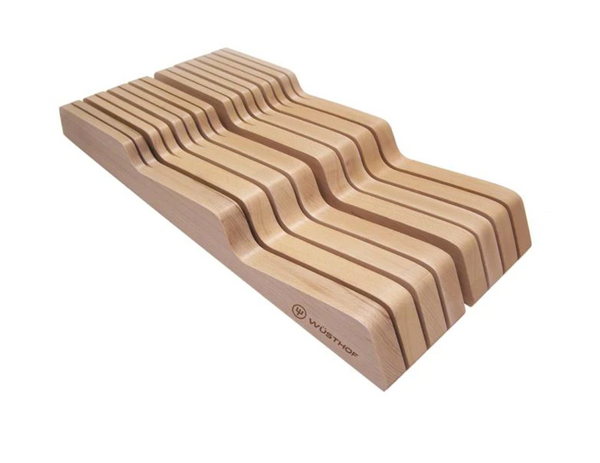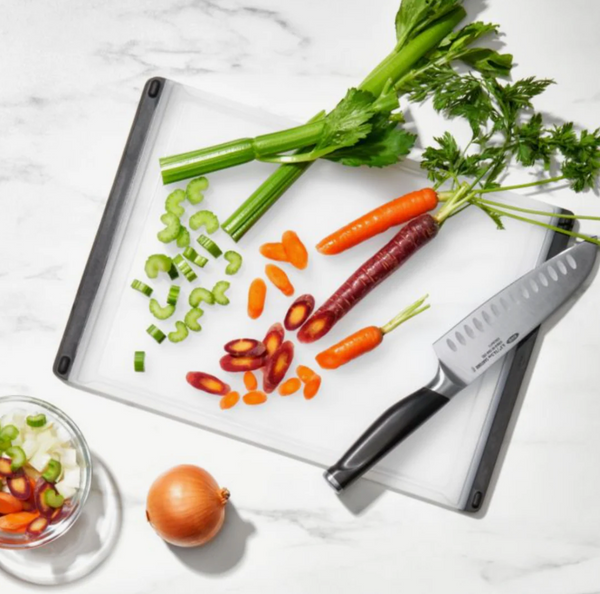Caring For Knives

Proper maintenance is essential for keeping your knives in good condition and ensuring their longevity. To maintain your knives, start by rinsing with warm water and mild dish soap immediately after each use. Never leave knives soaking in water or put them in the dishwasher. Hand dry thoroughly with a clean towel to remove any moisture.
Store knives properly in a knife block, on a magnetic strip, in a knife drawer insert, or in a knife roll or sheath. Make sure the storage method keeps the blades protected and prevents them from contacting other utensils or surfaces.
Always use a cutting board to protect the knife blade and prevent dulling. Avoid cutting on hard surfaces like ceramic, glass, or granite, as they can damage the blade.
Be sure to use a honing steel frequently to keep your knife sharp. When you use a knife, the blade comes into contact with the cutting board, causing the edge to be impacted. This is a natural occurrence and not a flaw. Over time and with repeated impacts, the thin edge of the blade can become curled, resulting in a "rolled edge." Although the edge is still sharp, the sharpest part is no longer effectively cutting through the food as you slice. This is where a honing steel comes in. Using a honing steel allows you to realign and uncurl the edge, restoring the razor-sharpness that allows the blade to glide effortlessly through the food. The frequency of honing can vary depending on your knife usage—some prefer to hone once a week, while others do it daily. Regardless, you'll be amazed by the noticeable difference it makes when you cut with a properly honed knife.
Shun Knives recommends you position the flat side of the blade against the 16° angle guide on the hand guard of your Shun honing steel. While maintaining that angle, gently draw the blade down the steel from the heel to the tip.
When honing no longer restores the desired sharpness, it’s time to consider real sharpening. Sharpening a knife involves removing a small amount of metal from the blade. A professional quality knife such as a Shun or Wusthof is built to withstand a lifetime of use and can be sharpened repeatedly. We advise you only sharpen when necessary- for home cooks that is typically once per year, while professionals may require more frequent sharpening. Shun offers free sharpening for all their knives. If you prefer a hands-on approach, we recommend learning how to use a whetstone.
Shop All Cutlery
- Nancy Leoni



Comments 0